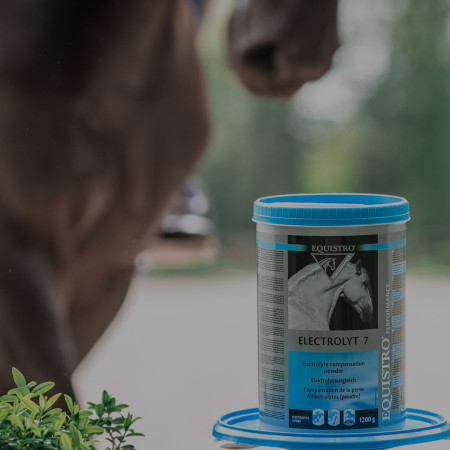
Renal function
Description
Key organ to waste products elimination
The kidney is responsible for eliminating much of the body's waste, whether it comes from food or the body’s metabolism (maintenance and renewal of body components). This is particularly the case for urea (which is derived from protein metabolism), creatinine (derived from muscle cells), uric acid (derived from the nucleic acids composing DNA and RNA), bilirubin (derived from degradation of red blood cells), and degradation products of different hormones. The kidney is also responsible for the elimination of certain drugs and toxins. The blood arriving at the kidneys is filtered and the unwanted molecules pass into the urine.
Regulation of volemia
The organism consists of about 65% water. In order to maintain this volume of water stable in the body, the water eliminated must correspond exactly to the water consumed. The kidney is responsible for this regulation: it adapts to eliminate the exact amount of water needed. For this, it receives information from pressure sensors of the blood circulation. When there is too much water in the body, blood volume and blood pressure increase. The sensors then send a message to the kidneys to increase the elimination of water. Conversely, when there is not enough water in the body (dehydration), the blood pressure decreases and hormonal messages are sent to the kidney to slow down elimination of water in the urine. Hormonal messages are also sent to the brain to stimulate the center of thirst and encourage the horse to drink. These hormonal messengers are complex and involve the liver (which sercretes the inactive form of the first messenger, angiotensinogen) and the kidney (which secretes renin in case of low blood pressure, renin changes the inactive form of the messenger into its active form, angiotensin).
Electrolyte balance
The kidney is also responsible for the electrolyte balance of the body. Electrolytes, especially sodium, potassium and chloride, play a major role in the important functions of the body and their concentration in the blood must be controlled very closely. This is again the role of the kidney: thanks to a complex system of filtration and reabsorption, it can control the exact quantity of electrolytes eliminated.
Acid-base balance
In the same way, the kidney closely regulates the elimination of hydrogen ions in order to maintain the acid-base balance of the body, which is essential to its proper functioning.
Endocrine function
The kidney is also an endocrine organ: it secretes erythropoietin (EPO) whose role is to stimulate the synthesis of red blood cells in the bone marrow. It is also responsible for the activation of calcitriol, a hormone that activates the absorption of calcium in the intestine and its fixation in the bones.
Metabolic role
Finally, the kidney is capable, like the liver, of producing sugar from other molecules such as amino acids (derived from proteins) in case of prolonged fasting. Sugar is essential for the proper functioning of certain organs that only use this substrate, such as the brain.
Renal diseases
When the kidney is no longer able to perform its functions (including elimination), this is called renal failure (RF). It can be acute (sudden) or chronic (slowly settles). Acute RF (ARF) may be of pre-renal, renal or post-renal origin. In pre-renal RF, there is no longer enough renal perfusion for it to function properly. The most common causes are dehydration, shock, or hemorrhage. In RF of renal origin, the kidney itself is affected and can no longer function properly. It can be a bacterial infection (Leptospirosis in particular) or a toxic cause. Finally, when the urine can no longer be eliminated due to an obstruction dowstreem to the kidney (at the level of the ureters, the bladder or the urethra), this is called post-renal RF. It happens in foals when the bladder tears and the urine pours into the abdomen.
Chronic renal failure (CRF) corresponds to an irreversible loss of the various functions of the kidneys. It is progressively established and is most often the result of uncontrolled acute renal failure.
The risks of dehydration
The kidney is probably the organ that is most sensitive to dehydration. It needs a lot of water to remove the waste from the body. In addition, because of its many functions, it has high nutrient and oxygen requirements. During dehydration, the kidney is less perfused, ie it receives less blood, thus less water to eliminate waste, less nutrients and less oxygen for its functioning. Nephrons, specialized cells responsible for filtration, can then die and will not be replaced. It is therefore essential, during dehydration following an intense effort or another disease, to quickly rehydrate the horse, either by stimulating it to drink (not always easy!) or by replentishing fluids with intravenous infusion.
Nephrotoxic molecules
Some molecules are toxic to kidney cells, and this toxicity is all the more severe when the horse is dehydrated. This is particularly the case for nonsteroidal antiinflammatory drugs (NSAID) and some antibiotics. It is therefore advisable, before administering them, to check the hydration status of the horse, and if not satisfactory, to correct it.
During myositis, a large number of muscle cells are destroyed and the myoglobin they contain is released into the bloodstream. It is then filtered by the kidneys and eliminated in the urine, which gives it its brown coloration. Myoglobin is a very large molecule that can damage the kidneys during its passage, especially if they do not have enough water to eliminate it. It is therefore essential in case of severe myositis to rehydrate the horse, especially if one wants to administer NSAID.
Hemoglobin is the major component of red blood cells, which is what gives them their color and allows them to transport oxygen. It is also a very large molecule. During acute piroplasmosis, the destruction of many red blood cells leads to the release of large quantities of hemoglobin into the blood, which must be eliminated by the kidneys. Again, this can damage the kidneys, especially if the horse is dehydrated.
Finally acorns, if consumed in large quantities can be toxic to the kidneys.
How to diagnose renal diseases
In acute renal failure, the clinical signs are often not very specific and reflect the problem at the origin of the RF (colic, shock, etc.). The horse may also pass little urine or not at all (anuria). During chronic RF, the horse often exhibits decreased appetite, weight loss, depression and poor general condition. It can also urinate and drink more than normal: it is called polyuria-polydypsia. It is possible to measure markers of renal function in the blood. Both creatinine and urea are normally eliminated by the kidney. If the kidney does not work well, their concentration in the blood increases. It is also possible to determine the sodium, potassium and chloride concentration in the blood: these will be modified (increased or decreased) in case of RF. A urine test can detect signs of bacterial infection or kidney damage. The urinalysis will also include a urinary specific gravity . During RF, the kidneys are no longer able to "concentrate" the waste in the urine and urine is therefore more "diluted" than normal.
How to treat renal failure
In acute renal failure, rapid action is required to avoid or limit the destruction of non-renewable kidney cells: restore renal perfusion by rehydrating the horse as soon as possible, stop the administration of any nephrotoxic substance, start antibiotic treatment if necessary based on the results of the urinalysis and in cases os post-renal RF remove the obstruction that prevents the urine from flowing.
In chronic renal failure, the prognosis is often guarded. In addition to treating the primary cause, it may be useful to compensate for decreased renal function by electrolyte supplementation and to feed with high quality proteins in order to limit the work of the kidney.
Dr. med. vet. Julie Dauvillier








